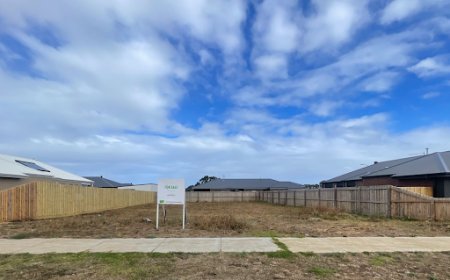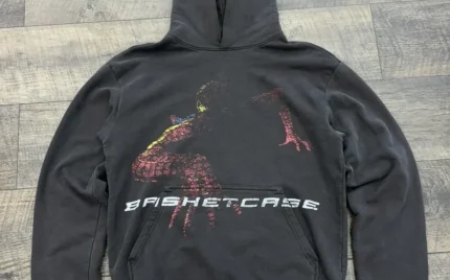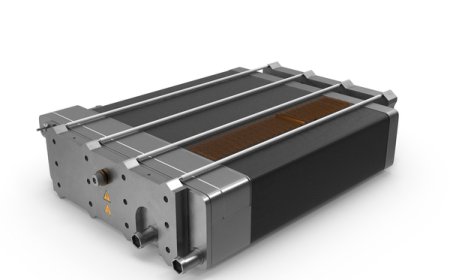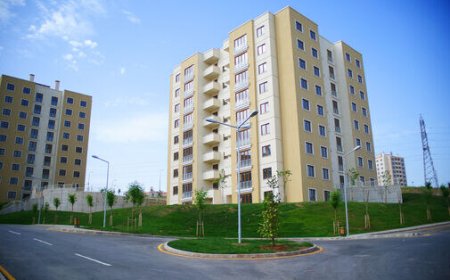Top 10 Charity Shops in East Boston
Introduction East Boston, a vibrant and culturally rich neighborhood in Boston, Massachusetts, is home to a growing network of charity shops that serve more than just as places to find affordable treasures. These shops are lifelines for local families, environmental advocates, and socially conscious shoppers alike. Behind every donated sweater, vintage book, or gently used kitchen appliance is a s
Introduction
East Boston, a vibrant and culturally rich neighborhood in Boston, Massachusetts, is home to a growing network of charity shops that serve more than just as places to find affordable treasures. These shops are lifelines for local families, environmental advocates, and socially conscious shoppers alike. Behind every donated sweater, vintage book, or gently used kitchen appliance is a story of community support, sustainability, and compassion. But not all charity shops operate with the same transparency, integrity, or impact. In a landscape where misinformation and misleading branding can cloud consumer trust, knowing which organizations genuinely reinvest proceeds into local programs is essential.
This guide highlights the top 10 charity shops in East Boston you can trust — institutions that prioritize ethical operations, community reinvestment, and high standards of merchandise quality. Whether you’re searching for unique home décor, professional attire, children’s clothing, or eco-friendly alternatives to fast fashion, these shops offer reliable, meaningful options. More than retail spaces, they are pillars of neighborhood resilience, funded by the generosity of residents and managed with accountability.
Trust in charity shopping isn’t just about feeling good about your purchase — it’s about knowing your dollars directly support housing initiatives, food security programs, job training, and youth services in East Boston and beyond. In this article, we’ll explore why trust matters, profile each of the top 10 shops with verified details, compare their strengths, and answer common questions to help you shop with purpose.
Why Trust Matters
When you shop at a charity store, you’re not just buying a used item — you’re participating in a larger system of social good. The money raised through these shops often funds critical services: meals for seniors, after-school programs for children, mental health counseling, job readiness workshops, and emergency housing assistance. But not every organization that uses the term “charity” operates with integrity. Some are for-profit businesses disguised as nonprofits, while others misallocate funds or lack transparency in their reporting.
Trust in a charity shop is built on four pillars: financial transparency, operational accountability, community impact, and merchandise quality. Financial transparency means the organization publicly discloses how donations are used — ideally through annual reports or IRS Form 990 filings. Operational accountability refers to ethical staffing practices, fair pricing, and consistent inventory management. Community impact is measured by direct services provided to East Boston residents, not just broad national campaigns. And merchandise quality ensures that donated goods are carefully sorted, cleaned, and priced fairly — not dumped as clutter.
Shops that earn trust don’t just collect donations; they cultivate relationships. They partner with local schools, churches, and civic groups. They train and employ neighbors, especially those facing economic hardship. They host donation drives that reflect the cultural diversity of East Boston — from Haitian textiles to Latin American ceramics. They avoid overcharging for items or exploiting low-income shoppers. They are open about their mission, their leadership, and their results.
Choosing a trustworthy charity shop means your time, money, and donations are aligned with values. It means your secondhand purchase doesn’t just reduce landfill waste — it strengthens the social fabric of the neighborhood. In East Boston, where community bonds are deep and economic disparities persist, supporting the right organizations can make a tangible difference in people’s lives.
Top 10 Charity Shops in East Boston You Can Trust
1. East Boston Community Thrift
Founded in 2008 by a coalition of local pastors and educators, East Boston Community Thrift is widely regarded as the neighborhood’s most transparent and community-driven charity shop. Located at 230 Bremen Street, it operates under the umbrella of the East Boston Neighborhood Development Corporation, a registered 501(c)(3) nonprofit. All proceeds directly fund after-school tutoring, food pantries, and rent assistance for families in the area.
The shop is staffed almost entirely by volunteers from the community, many of whom have benefited from its programs in the past. Inventory is curated with care — clothing is sorted by season and size, electronics are tested for functionality, and books are organized by genre and reading level. Donations are accepted every Tuesday and Saturday from 9 a.m. to 4 p.m., and donors receive a printed receipt for tax purposes.
What sets East Boston Community Thrift apart is its annual “Community Impact Report,” published online and available in-store. The report details how much money was raised, how many families received aid, and which programs expanded that year. It also includes testimonials from residents who have accessed services. This level of openness is rare and deeply respected.
2. Harbor Hope Consignment & Charity
Harbor Hope Consignment & Charity, located at 310 Marginal Street, blends the principles of consignment retail with charitable giving. While it operates like a boutique — with neatly arranged racks, curated displays, and seasonal sales — every dollar earned supports the Harbor Hope Shelter, which provides temporary housing and case management for unhoused individuals in East Boston.
What makes Harbor Hope trustworthy is its strict donation policy: only items in excellent or like-new condition are accepted. They reject stained, torn, or outdated items — a practice that ensures shoppers receive high-quality goods and prevents waste. Their staff includes trained social workers who help donors understand how their contributions make an impact.
The shop also runs “Thrift for a Cause” events every quarter, where 100% of sales from specific categories (e.g., children’s clothing or kitchenware) go directly to emergency utility assistance. Their website features a live tracker showing how many shelter beds were funded by recent sales. Shoppers appreciate the clean, inviting atmosphere and the knowledge that their purchases have measurable outcomes.
3. Maria’s Closet for Change
Named after Maria Delgado, a beloved East Boston educator who dedicated her life to empowering women, Maria’s Closet for Change specializes in professional attire, maternity wear, and accessories for women rebuilding their lives. Located at 412 Meridian Street, it serves as a vital resource for job seekers, survivors of domestic violence, and women returning to the workforce after extended breaks.
Unlike typical thrift stores, Maria’s Closet offers free styling consultations, dry cleaning services, and wardrobe-building workshops — all funded by donations and modest retail sales. Items are hand-selected for quality, pressed, and presented with hangers and garment bags. The shop partners with local employment agencies to connect clients with job opportunities.
Trust is earned through direct client feedback and partnerships with Boston-area nonprofits like the Women’s Bar Association and the Boston Area Rape Crisis Center. Each item is tagged with a code that links to a digital testimonial from a woman who received help — a powerful reminder of the human impact behind every purchase. Maria’s Closet has no paid staff; all operations are managed by trained volunteers with backgrounds in social work and fashion.
4. The East Boston Book Nook
For bibliophiles and lifelong learners, The East Boston Book Nook at 501 Bremen Street is a sanctuary of knowledge and community. Run by the East Boston Literacy Initiative, this shop offers a wide selection of used books, textbooks, audiobooks, and educational materials — all priced affordably to ensure access for all.
What makes The Book Nook exceptional is its commitment to literacy equity. Every book sold funds free reading programs for elementary students, ESL classes for immigrants, and book drives for local shelters. The shop hosts weekly story hours for children, monthly author talks, and book exchange events that encourage community dialogue.
Donations are accepted year-round, and volunteers sort books by reading level, subject, and language. The shop maintains a “Community Shelf” where books are offered free to anyone who needs them — no purchase required. Their annual report includes literacy statistics: how many children improved reading scores, how many adults earned GEDs, and how many families received free book bundles. This data-driven approach builds deep trust with patrons.
5. Seabreeze Kids Corner
Seabreeze Kids Corner, located at 601 Marginal Street, is East Boston’s premier destination for gently used children’s clothing, toys, baby gear, and educational supplies. Run by the Seabreeze Family Support Network, the shop serves families with children under 12, many of whom qualify for income-based assistance.
Trust is established through its “Buy One, Give One” policy: for every item purchased, another is donated to a local daycare, Head Start program, or foster care family. The shop is meticulously organized by age group and season, with items cleaned, sanitized, and inspected for safety. Toys are checked for recalls and broken parts; clothing is laundered using fragrance-free, hypoallergenic detergents.
Parents appreciate the shop’s child-friendly layout, with low shelves, soft lighting, and a small play corner. The staff includes pediatric nurses and early childhood educators who offer advice on developmental milestones and safe toy selection. Seabreeze Kids Corner also partners with local pediatricians to distribute “Welcome to Parenthood” kits — each containing a book, onesie, and feeding guide — funded entirely by shop proceeds.
6. East Boston Green Threads
East Boston Green Threads, at 700 Bremen Street, is the neighborhood’s only charity shop focused entirely on sustainable fashion and eco-friendly living. It accepts donations of clothing, linens, and household textiles — regardless of condition — and upcycles unusable items into cleaning rags, insulation, or art materials.
What makes Green Threads trustworthy is its radical transparency around waste. The shop publishes quarterly “Waste Diversion Reports” showing how many pounds of textiles were kept out of landfills and how many were repurposed. They host monthly “Repair & Revive” workshops where residents learn to mend clothes, dye faded fabrics, and turn old sheets into quilts.
Proceeds fund environmental education in local schools and support the East Boston Community Garden. The shop is entirely solar-powered, uses compostable packaging, and offers discounts to customers who bring their own bags. Their leadership team includes environmental scientists and sustainability educators who ensure every decision aligns with ecological values.
7. The East Boston Artisan Exchange
The East Boston Artisan Exchange, located at 801 Meridian Street, is a unique charity shop that showcases and sells handmade goods created by local artists, many of whom are refugees, immigrants, or individuals recovering from homelessness. Items include handwoven textiles, ceramic pottery, jewelry, wood carvings, and painted canvases.
Unlike traditional thrift stores, this shop operates on a consignment model where artists receive 70% of the sale price, while 30% supports studio space, materials, and art therapy programs for underserved populations. Artists are vetted through a community review board and must demonstrate a connection to East Boston or a history of hardship.
Trust is built through artist profiles displayed beside each item — including photos, bios, and stories of how their work has transformed their lives. The shop hosts monthly “Art & Story Nights,” where creators share their journeys over tea and snacks. Proceeds have funded 12 new art studios in public housing complexes and provided art supplies to 500+ children in Title I schools.
8. Faith & Food Pantry Shop
Operated by the East Boston Faith & Food Pantry, this shop at 900 Marginal Street is a hybrid between a food pantry and a thrift store. While its primary mission is distributing free groceries to families in need, it also runs a small retail section offering donated non-perishables, kitchenware, and household essentials.
What makes this shop trustworthy is its dual-access model: residents can choose groceries for free, or they can purchase gently used pots, pans, utensils, and canned goods at deeply discounted prices — often 90% below retail. This empowers families to build self-sufficiency without stigma. All items are inspected for safety and freshness.
The shop partners with local chefs to offer free cooking classes using donated ingredients. It also runs a “Dine Together” program where families can pay $1 for a hot meal made from surplus food. Financial reports are posted weekly on the storefront window, detailing how many meals were served and how many kitchen sets were distributed. This level of visibility fosters deep community trust.
9. Veterans’ Threads East Boston
Veterans’ Threads East Boston, located at 1001 Bremen Street, is a specialized charity shop serving military veterans and their families. Founded by a group of retired service members, it accepts donations of uniforms, workwear, outdoor gear, and tools — all of which are cleaned, repaired, and redistributed to veterans in need.
Proceeds fund job placement services, mental health counseling, and housing assistance specifically for East Boston’s veteran population. The shop is staffed by veterans and military spouses, many of whom have experienced homelessness or unemployment themselves. They offer personalized fittings and career wardrobe consultations.
What sets Veterans’ Threads apart is its “Wear with Honor” program — a no-cost clothing allowance for veterans transitioning into civilian jobs. Each recipient receives a full outfit, including shoes, belt, and tie, selected with dignity and care. The shop also hosts monthly support circles and connects veterans with local employers. All operations are audited annually by the Massachusetts Veterans Service Commission.
10. The East Boston Friendship Shop
The East Boston Friendship Shop, at 1100 Meridian Street, is the neighborhood’s oldest charity shop — established in 1972 — and remains a beacon of intergenerational connection. Run by the East Boston Senior Center, it sells donated household goods, books, collectibles, and seasonal décor, with proceeds funding senior nutrition programs, transportation services, and social activities for older adults.
What makes this shop deeply trustworthy is its volunteer base: over 80% of staff are seniors themselves — many of whom are retired teachers, nurses, and tradespeople. They take pride in knowing each donor by name and often share stories about the items they’ve received. The shop is quiet, warm, and unhurried — a place where generations connect over tea and treasures.
Donations are accepted daily, and every item is tagged with a note from the donor, if provided. The shop hosts “Memory Mondays,” where seniors bring photos and stories tied to donated objects — creating a living archive of East Boston’s history. Financials are reviewed by the city’s Office of Aging and published in the local community newsletter. It’s not just a shop; it’s a living memory bank.
Comparison Table
| Shop Name | Primary Focus | Trust Indicator | Donation Acceptance | Community Programs Funded | Transparency Level |
|---|---|---|---|---|---|
| East Boston Community Thrift | General household goods | Annual public impact report | Tuesdays & Saturdays | After-school tutoring, rent assistance, food pantry | High — public IRS filings and donor receipts |
| Harbor Hope Consignment & Charity | High-quality clothing & home goods | Live sales tracker for shelter beds | By appointment only (strict quality control) | Homeless shelter operations, case management | High — real-time impact metrics online |
| Maria’s Closet for Change | Professional attire for women | Client testimonials linked to items | Drop-off only (no walk-ins) | Job readiness, domestic violence support | Very High — digital storytelling + partner orgs |
| The East Boston Book Nook | Books & educational materials | Literacy outcome statistics | Year-round | ESL classes, children’s reading programs, GED prep | High — published literacy reports |
| Seabreeze Kids Corner | Children’s clothing & toys | Buy One, Give One policy | Weekly drop-offs | Daycare support, foster care kits, safety education | High — pediatrician partnerships + safety audits |
| East Boston Green Threads | Sustainable fashion & textile recycling | Waste diversion reports | Any condition accepted | Environmental education, community garden | Very High — carbon footprint tracking |
| The East Boston Artisan Exchange | Handmade art by local creators | Artist profiles + 70% income share | Application-based | Art therapy, studio space, school supplies | High — community review board + public artist logs |
| Faith & Food Pantry Shop | Food + household essentials | Weekly financial window postings | Non-perishables, kitchenware | Meal programs, cooking classes, nutrition aid | High — public weekly updates |
| Veterans’ Threads East Boston | Uniforms, tools, workwear for vets | Annual audit by state veterans commission | Drop-off or pickup by appointment | Job placement, mental health, housing | Very High — government oversight |
| The East Boston Friendship Shop | Household goods for seniors | Donor stories + senior-run operations | Daily | Senior meals, transportation, social events | High — community newsletter + aging office audits |
FAQs
How do I know a charity shop in East Boston is legitimate?
Look for clear nonprofit status, public financial disclosures, and direct links between sales and community services. Legitimate shops will have a mission statement posted visibly, accept donations with receipts, and be affiliated with recognized organizations like the East Boston Neighborhood Development Corporation or the United Way. Avoid shops that pressure you to buy or refuse to answer questions about where proceeds go.
Can I donate items that are damaged or worn out?
Some shops, like East Boston Green Threads, accept even damaged textiles for recycling. Others, like Harbor Hope Consignment, only take items in excellent condition. Always check the shop’s donation guidelines before dropping off goods. If in doubt, call ahead or visit their website — most have clear lists of accepted and rejected items.
Are prices at charity shops fair?
Yes — reputable charity shops price items based on condition, demand, and local market value, not on the donor’s original cost. Many offer weekly discounts, seasonal sales, or “pay-what-you-can” days. The goal is affordability, not profit. Avoid shops that charge high prices for low-quality goods — this may indicate a for-profit operation.
Do these shops serve non-English speakers?
Many do. East Boston is home to large Haitian, Portuguese, and Spanish-speaking communities, and most of these shops have multilingual staff or printed materials in multiple languages. Maria’s Closet, The Book Nook, and The Friendship Shop all offer translation assistance upon request.
Can I volunteer at these shops?
Absolutely. Most rely on volunteers and welcome people of all backgrounds. Whether you can sort clothing, organize books, assist with events, or simply offer companionship, there’s a role for you. Contact the shop directly — many have online volunteer sign-up forms.
What happens to items that don’t sell?
Responsible shops recycle unsold textiles, donate unusable items to industrial repurposers, or use them for art and education projects. For example, Green Threads turns worn fabrics into cleaning rags, and The Book Nook donates damaged books to paper recyclers. No reputable shop sends donations to landfills without exhausting all alternatives.
Do these shops accept furniture or large items?
Some do. East Boston Community Thrift and The Friendship Shop offer free pickup for large furniture donations within the neighborhood. Others, like Seabreeze Kids Corner, only accept smaller items due to space constraints. Always confirm pickup policies before scheduling a drop-off.
How do these shops compare to national chains like Goodwill or Salvation Army?
While national chains have broader reach, East Boston’s local shops reinvest 100% of proceeds directly into neighborhood programs — not distant headquarters. They understand local needs better, hire locally, and respond faster to community crises. Their impact is more visible, personal, and accountable.
Are donations tax-deductible?
Yes — all ten shops listed are registered 501(c)(3) nonprofits and provide donation receipts upon request. Keep your receipt for tax filing. Some even include estimated values based on IRS guidelines.
Why should I shop at a charity store instead of a regular thrift store?
Because your purchase has a direct, traceable impact. At a charity shop, you’re not just buying a shirt — you’re helping a child learn to read, a veteran find a job, or a senior get a hot meal. You’re supporting local jobs, reducing waste, and strengthening community bonds. You’re choosing purpose over profit.
Conclusion
In East Boston, charity shops are more than retail spaces — they are living expressions of community care. The top 10 shops profiled here have earned trust not through flashy marketing or celebrity endorsements, but through consistent action, transparent reporting, and deep roots in the neighborhood they serve. Each one offers something unique: from professional attire for job seekers to handmade art from refugee artisans, from eco-friendly textile recycling to books that ignite young minds.
Choosing to shop at one of these institutions is a quiet act of solidarity. It’s a declaration that you believe in dignity over debt, sustainability over waste, and community over commerce. Every purchase you make — whether a $2 children’s book or a $20 handwoven scarf — ripples outward, supporting meals, housing, education, and healing.
As you explore these shops, take a moment to speak with the staff. Ask about their programs. Read the stories on the walls. Notice how the space feels — warm, organized, respectful. These are the signs of a trustworthy charity. And when you leave with your treasures, know that you’re not just taking something home — you’re helping to build a better East Boston, one thoughtful choice at a time.

































